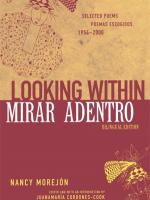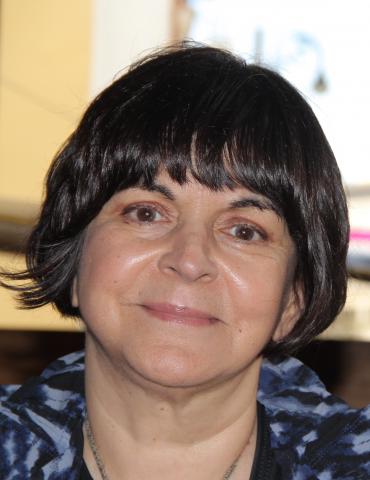
University of Kansas, 1990, Ph.D. Major, Contemporary Spanish American Literature and Critical Theory
University of California-Berkeley, 1989, Ph.D. Minor, Historical Linguistics
University of Wisconsin, Madison, MA, Spanish Literature
University of Wisconsin, Madison, BA. French, Spanish, and Education
Professor Cordones-Cook has built her scholarship around four related and complimentary pillars: Gender Studies, Afro Latin American theater, Afro-Cuban Renaissance, and Documentary filmmaking. Her research focuses on the convergence of arts and letters and social concerns, and has always concentrated on the marginal non-canonical voices, literature and culture of women and Afro-descendants: those who share an experience of oppression and repression. Cordones-Cook extensive scholarly work includes research, publications, and documentaries on Spanish American writers and artists such as Luisa Valenzuela, Nancy Morejón, Jorge Luis Borges, Miguel Barnet, Manuel Mendive, Rogelio Martínez Furé, Georgina Herrera, Eugenio Hernández Espinosa, Maité Vera, Inés María Martiatu, Soleida Ríos, Eduardo Rivero Walker, Eduardo “Choco” Roca Salazar, Alberto Lescay, Roberto Diago, Santiago Rodríguez Olazábal, Gisela Arandia, Gloria Rolando, Víctor Fowler Calzada, María del Carmen Barcia, Gretchen Lima, Rolando Estévez Jordán, Pedro Pérez Sarduy, Adriana Genta, Mercedes Rein, Carlos Maggi, Andrés Castillo, Albalucía Angel, Enrique Buenaventura, Liliana Heer, Cristina Escofet, Rosa María Crespo de Britton, Ruth Behar, Natalia Bolívar, Fátima de la Caridad Patterson, Roberto Zurbano, and Belkis Ayón among others. Her articles appear in major journals in the Americas and Europe: Revista Iberoamericana, Afro-Hispanic Review, Revista de Estudios Hispánicos, Théatre, World Literature Today, Latin American Theater Review, Letras Femeninas, Chasqui, Hispanófila, Hispamérica, Revista de Estudios Canadienses, Plural, La Palabra y el Hombre, Anales del Caribe, Revista Unión, Revista del Vigía, Conjunto, Casa de las Américas, among others.
Professor Cordones-Cook has published over eighty journal articles and book chapters and fifteen books, five of her books have second editions, and one, a third edition. Two of her books are accompanied by her documentaries. Presently she is working on testimonials of Havana’s Black Renaissance, the generation of Afro-Cuban writers and artists who came of age with the 1959 Cuban Revolution, and on the complete poetry of Nancy Morejón to be published by Letras Cubanas.
Cordones-Cook has been guest-editor for the leading professional journals in their fields: Letras Femeninas (2001), Callaloo (2005), Revista Iberoamericana (2011), and Afro-Hispanic Review (2018).
Building upon her research and in the process of filming oral histories and cultural events, Cordones-Cook started directing and producing documentaries on the most representative Afro-Cuban intellectuals and artists who came of age after the 1959 Cuban revolution. She is building a unique encyclopedic audiovisual platform on which to share these Afro-Cuban writers and artists and their creations and engage a broader audience.
Cordones-Cook has become an award-winning filmmaker, including the 2014 Emmy nomination for directing and producing a historical documentary. So far she has completed twenty five documentaries and is currently making progress on other films. She has as well started creating a series of testimonial documentaries. She is frequently invited as a featured speaker or to screen her films at prestigious academic and cultural institutions in the United States and around the world, including the Massachusetts College of Art and Design; Harvard University; Washington University; Barnard College; Smith College; New York University; the Museum of the African Diaspora of San Francisco; as well as overseas, including the Museo Nacional de Bellas Artes of Havana; the UNAM in Mexico City; "Fundación Internacional Jorge Luis Borges," Argentina; M.A.L.B.A. Museum of Buenos Aires; U.N.E.S.C.O. / Casa de las Américas and U.N.E.A.C., in Havana; Fundación Caguayo, in Santiago de Cuba; “Feria Internacional del Libro” in various cities in Cuba; the University of Birmingham, England; "Cabildo de Montevideo," the Universidad de la República, Uruguay; the Universidad de Cartagena, Colombia; La Sorbonne, Paris; the Université de Lyon 2, France; Humboldt University and the Instituto Cervantes, in Berlin; the Hebrew University of Jerusalem.
Furthermore there have been festivals around Cordones-Cook documentaries in San Francisco, Havana, among other cities. In addition to this broad spectrum of research, Professor Cordones-Cook has also been interviewed by numerous radio and television programs in the Americas and her work has been covered and reviewed by the international printed and visual media.
In addition to her written work, Cordones-Cook has developed other scholarly initiatives. She has carried out over eighty professional interviews overseas with Spanish American writers and artists. In 2007, she founded and developed at the MU Museum of Art and Archaeology a special collection of Ediciones Vigía limited edition art-object books and a collection of one-of-a-kind installation-books by Rolando Estévez. She has as well founded and has continued to develop the “Nancy Morejón Special Collection of Afro-Romance Literature and Culture,” which is housed at the MU Museum of Anthropology. This collection makes available to scholars an invaluable array of published and unpublished material, books, manuscripts, journals, including rare editions and films from the Afro-Romance cultures and traditions. In order to complement this collection, she started producing and directing a series of videos of oral histories featuring autobiographical narrations and reflections of prominent Afro-Hispanic artists and writers (completed over thirty to date). She has as well filmed over one hundred hours of events in Cuba, the USA, and Canada on topics related to the Afro-Romance Diaspora culture and literature, such as conferences, interviews, ritual dances, and theatrical performances.
During her tenure at the University of Missouri Professor Cordones-Cook has brought to campus over fifty distinguished national and international writers, artists and scholars, and has organized over twenty international conferences that have included academicians, students, and community members. The most recent high impact conference was Afro-Cuban Artists: A Renaissance (April 2016), an event that brought to MU the artwork of three of the most significant Afro-Cuban artists--Manuel Mendive, Eduardo “Choco” Roca Salazar, Santiago Rodríguez Olazábal-- attracting distinguished artists and scholars from around the world.
https://www.youtube.com/watch?v=y9eo6ZxFu1Q
For 2022, Cordones-Cook is preparing at the University of Missouri another international interdisciplinary event: Afro-Cuban Legacies: Visual Arts, Literature, Theatre, Music, and Religion, that will bring to campus Juan Roberto Diago, Alberto Lescay Merencio, Nancy Morejón, Fátima de la Caridad Patterson Patterson, and Cuban.
Honors
Named University of Missouri Curators’ Distinguished Professor of Spanish (2017) and the Catherine Paine Middlebush Professor of Romance Languages (2014), Juanamaría Cordones-Cook has been the recipient of numerous honors, awards, and grants: Emmy Award Nomination for historical documentary; MU Honors College Professor of the Year Award; Wayne State University Press Bestseller; First Place for “Theater of the World Award”, from the University of Buenos Aires; First Place Film at the Wake Forest Film Festival Telly award for documentary; First Place Award for Best Heartland Feature Documentary at the KC Film Fest; First Place Documentary at the Wake Forest Film Festival; Audience Choice Award at the Hollywood International Diversity Film Festival; First Place Film at I-70 Kansas City Film Festival; First Place for The 2016 International Latino Book Awards; The Centro Provincial del Libro y la Literatura y el Centro de Promoción literaria "José Soler Puig,” award for the documentary on Alberto Lescay (Santiago de Cuba); the Universidad de Oriente, Facultad de Educación en Ciencias Sociales y Humanidades award for the documentary on Rogelio Martínez Furé (Santiago de Cuba).
- Poética de transgresión en la novelística de Luisa Valenzuela, Peter Lang, 1991,
Biblioteca Virtual Miguel de Cervantes (2018).
http://www.cervantesvirtual.com/portales/luisa_valenzuela/obra/poetica-de-transgresion-en-la-novelistica-de-luisa-valenzuela-933419/
* Soltando Amarras y memorias: Mundo y poesía de Nancy Morejón, Cuarto Propio, 2010. (240 p)
Reviewed by:
* Celia Medina: “Convergencias para escuchar el silencio.” La Jiribilla: Revista de Cultura
cubana. Año VIII. La Habana del 11 al 21 de febrero de 2010 http://www.lajiribilla.cu/2010/n458_02/458_134.html;
*Georgina Herrera: “Las amarras de la memoria.” AfroCubaWeb. 20/2/10
http://www.afrocubaweb.com/herrera.htm;
* Ineke Phaf-Rheinberger. “J. Cordones-Cook: Soltando amarras y memorias: mundo y poesía de Nancy Morejón.” Iberoamericana. América Latina-España-Portugal, Ensayos sobre letras, historia y sociedad. Notas. Reseñas iberoamericanas. Año X, 40 (Diciembre 2010). 259-261;
* Claudette Williams, Afro-Hispanic Review. Vol. 30. Number 2. (Fall 2011) 221-223;
* Flora González Mandrí. Revista de Estudios Hispánicos. XLV, 2 (2011) 495-497.
* Soltando amarras y memorias: Mundo y poesía de Nancy Morejón, Revised 2nd edition, Ediciones Sur, Instituto Cubano del Libro,
2014. (380 pages)
Reviewed by:
*Ana Luz García Calzada in Guantánamo, May 2014;
*Fernando Rodríguez Sosa, Trabajadores, Organo de la Central de Trabajadores de Cuba,
July 2014;
*Margarita Mateo. Unión de Artistas y Escritores Cubanos, UNEAC, July 2014.
- Del palenque a la escena: Critical anthology of Afro-Latin American theater. Universidad Nacional de Colombia Press, 2012, 2013, 2014. Three editions.
(15 plays). Selected by the Minister of Culture of
Colombia to be distributed in all the schools, public libraries, and municipalities in the nation.
Reviewed by:
* Evelyn Galindo-Doucette Latin American Theatre Review, Volume 49, Number 1, Fall 2015 pp.
* Azucena Ester Joffe and María de los Ángeles Sanz. February 20, 2013;
KARPA: TEATRALIDADES DISIDENTES, ARTES VISUALES Y CULTURA. 6 Summer
Issue 2013.
* http://www.calstatela.edu/misc/karpa/Karpa6.2/Site%20Folder/mamercedes.html; *CONJUNTO:
Revista de Teatro Latinoamericano. (Casa de las Américas) 167 (abril-junio 2013): 107.
*Maddox, John. “J. Cordones-Cook, edr. Del Palenque a la escena”. Afro-Hispanic Review. 33.2 (2014): 181- 185.
* Poesía completa, de Georgina Herrera. Selection, introduction and notes, by J. Cordones-Cook. Co- edition by J. Cordones-Cook and G. Abudu. La Habana: Letras Cubanas, 2017.
Presented by Roberto Zurbano in Vedado, Havana (September).
Reviewed by Rosemary Geisdofer Leal, Afro-Hispanic Review, Vol. 37, Number 2 (Fall 2019): 170-
172.
* Second edition of Always Rebellious/Cimarroneando. Chico, California: Cubana Books, 2016.
FIRST PLACE Award in the category of BEST POETRY BOOK - ONE AUTHOR - BILINGUAL
for The 2016 International Latino Book Awards (September 2016).
Presented by Sara Cooper.
Reviewed by Ana Zapata-Calle, Afro-Hispanic Review. Vol. 37, Number 2 (Fall 2019): 185-187.
* La silla dorada. Poems by Nancy Morejón. Edition, selection, introduction and notes, by J. Cordones-
Cook. Accompanied by La silla dorada, audiovisual anthology directed and produced by Cordones-
Cook. La Habana: Letras Cubanas (2014).
Presented and reviewed at: Fortaleza de la Cabaña, Sala Nicolás Guillén, by Leandro Camargo, and
at Hotel Inglaterra, in Parque Central, Havana, Cuba.
* Always Rebellious/Cimarroneando. Edition, selection, introduction, and notes by Cordones-Cook;
translation by M. Rodríguez-Alcalá, J. Cordones-Cook, and Alexander Cook. Chico, California:
Cubana Books, 2014. Book includes documentary, Cimarroneando con GH, directed and produced
by Cordones-Cook.
Presented at: Fortaleza de la Cabaña, Sala Alejo Carpentier, by Sara Cooper (2014).
Reviewed by: * Maria del Mar López-Cabrales. Letras Femeninas. Vol. 41, No 2 (2015): 193-194.
*Ana Zapata-Calle. Afro-Hispanic Review. Vol. 37, Number 2 (Fall 2019): 185-187.
* Más allá del héroe: Antología crítica de teatro biográfico hispanoamericano. Critical anthology of
Latin American biographical theater. Medellín, Colombia: Editorial Universidad de Antioquia
(2008).
Reviewed by: Glickman, Nora. “Desafíos a la historiografía oficial. ” Telondefondo, Revista de teoría y
crítica teatral. Año V. Diciembre 2009. 10.
* Mujeres en las tablas: Antología crítica de teatro biográfico hispanoamericano. Critical anthology of
dramatizations of historical/mythical women lives. Buenos Aires: Editorial Nueva Generación,
2005. FIRST PLACE Award for “Theater of the World Award”, from the Universidad de Buenos
Aires.
Reviewed by:
*María Fernanda Pinta. Telefondo, Revista de Teoría y Crítica Teatral. 21 de Diciembre de 2005. www.telondefondo.org;
* Rocío Galicia. Latin American Theater Review (Spring 2007): 182-84.
* Looking Within /Mirar adentro, 1954/2000. Poetry by Nancy Morejón. Edition, Notes, and Introduction by Juanamaría Cordones-Cook. Wayne State University Press, 2003. BEST SELLER.
Reviewed by: Mary Berg, Hispania, 87 (March 2004): 88-89.
Barbara Mujica. Americas. 63; Carol Meir, African American Review. Volume 39, Numbers 1-2
(2005): 252-245.
González Mandri, Flora. The Black Scholar Press: Journal of Black Studies and Research. Black
International Issues: 2006. 36, 23. 2-3 65-66.
* ¿Teatro negro uruguayo? Texto y contexto del teatro afro-uruguayo de Andrés Castillo.
Montevideo: Editorial Graffiti, 1996.
Reviewed by:
* Prof. Juan Carlos Legido at “Feria Nacional del Libro y el Grabado,” Montevideo, December
23, 1996;
* Myriam Caprile, La Mañana [Montevideo], January 11, 1997;
* Eduardo Paz, “Amo las voces marginadas,” El Observador [Montevideo], Tuesday, January
14, 1997;
* Carlos Reyes, “Así en el teatro como en el carnaval,” Búsqueda [Montevideo], February 6
to 12, 1997;
* Daniel Briquet, “Cuando los negros hacían teatro,” Paula”, 1997.
* Alberto Britos Serrat, Mundo Afro [Montevideo], April, 1997;
* Jorge Piñataro Calero, “Teatro,” Relaciones: Revista al Tema del Hombre [Montevideo],
March,1997.
* Nora Glickman, Latin American Theatre Review, Fall 1997.
* Before a Mirror: The City. Poems by Nancy Morejón. Bilingual edition. Edition, introduction and notes, by J. Cordones-Cook. White Pine Press (2020).
* Handmade in Cuba: Rolando Estévez and the Beautiful Books of Ediciones Vigía (2020), University of Florida Press. This book is the result of the international 2012 conference Cultural Bricolage: Ediciones Vigía, Artist Books, organized and chaired by J. Cordones-Cook. http://www.ruralmarketingnews.com/article/?id=130459
- "Novela negra con argentinos: The Desire to Know." World Literature Today, (Autumn 1995): 745 -750.
- "Hibridez cultural/africanía religiosa en Uruguay." Revista Iberoamericana. 188-189 (1999), 649-70.
- "Cola de lagartija: La hibridez cultural como contradiscurso y resistencia." Letras Femeninas. XXVII- Núm. 1 (Primavera 2001): 83-106.
- "Genealogía matrilineal en la obra de Nancy Morejón." Revista de Estudios Hispánicos. 38 (2003): 509-32.
- “Umbrales de exilio.“ La Revista del Vigía. 27 (2004). 139-49.
- “El mimetismo del colonizado … La tragedia del rey Christophe.“ Anales del Caribe. (2004): 247-64.
- “Emelina Cundeamor: entre la máscara y la autenticidad.” Caribe. no. 1 (Summer 2005): 7- 18.
- “Historia de vida y algo más.” Revista Iberoamericana. Vol. LXXVII, Núm. 235, Abril-Junio 2011.
- “Rolando Estévez Jordán, muchos artistas.” Afro-Hispanic Review, Volume 31, Number 2 (Fall 2012): 15-28.
- “Retórica de una mirada sobre La Habana”. Afro-Hispanic Review, Volume 31, Number 2 (Fall 2012): 163-174.
- “Artes afro-cubanas: Un renacimiento.” Afro-Hispanic Review (Fall 2017).
- “Santiago Rodríguez Olazábal: ‘Mis obras son sangre de mis venas’.” Afro-Hispanic Review (Fall 2017).
- “Manuel Mendive: ‘Embellecer la vida es mi gran objetivo’.” Afro-Hispanic Review (Fall 2017).
- “Choco: ‘Con los pies en La Habana’.” Afro-Hispanic Review (Fall 2017).
http://www.afrocubaweb.com/cordones-cook.html
http://cordonescook.wix.com/documentaries
Cordones-Cook documentaries have received numerous national and international awards including an Emmy nomination. They have been screened hundreds of times at prestigious venues around the world including La Sorbonne, in Paris; the University de Lyon, in France; the University of Humboldt, and the Instituto Cervantes, in Berlin; the Hebrew University of Jerusalem; the Universidad de Cartagena, in Colombia; the Universidad de la República, Montevideo, in Uruguay; Museo Nacional de Bellas Artes, Casa de las Américas, UNEAC, and Fundación Caguayo, in Cuba; Harvard University; Washington University; the University of Michigan; the Massachusetts College of Art and Design, among many others, and at major national and international museums and festivals, as well as at festivals dedicated to her films.
- La silla dorada (antología audiovisual) (2010), ca. 90 minutes long. Audiovisual anthology of poetry by Nancy Morejón filmed in Cuba. The poet reads 52 of her most celebrated poems.
- Cimarroneando con G.H (2011) , ca. 30 minutes long with English subtitles. Comment: a candid interview of Georgina Herrera with J. Cordones-Cook where poet discusses memories, gender issues, racial relations, and racism in socialist Cuba. Film includes images of the poet in different moments of her life, with artwork and African masks from the University of Missouri, Museum of Art and Archaeology and Museum of Anthropology. The music was composed and played for this documentary by Professor Anthony Glise.
http://www.youtube.com/watch?feature=player_embedded&v=dxlDAoBZwyo
- Battle: Change from within / Cambio desde adentro (February 2012), ca. 56 minutes long with Spanish subtitles. Comment: the life of Eliot Battle, a Columbia educator who played a pivotal role in desegregating schools, housing, and the community. As he facilitated changes with quiet resolve, he faced resistance from both the black and white communities. His calm demeanor and dedicated work within existing institutions and systems allowed him to bridge the gap between the two races and change Columbia for the better.
http://www.youtube.com/watch?v=3aouPdS6Lpw
- Ediciones Vigía: Poéticas visuales / Visual Poetics (2012), 51 minutes long with English subtitles. Comment: the development and evolution of the press, the production of Vigía books as well as interviews with Vigía craftsmen and women, and numerous other prominent Cuban intellectuals who have been involved with this press from its inception, such as poet laureate Nancy Morejón, composer Marta Valdés, art historian Adelaida de Juan, anthropologist Ruth Behar, among others.
http://www.youtube.com/watch?v=iK-dYtsXPmU
- La Habana expuesta, un diseño de Estévez / Havana on Display, a Design by Estévez (2012), on anthology of poetry by Nancy Morejón, edited by Juanamaría Cordones-Cook, 21 minutes long with English subtitles. Comment: a documentary on the design of a book to be reproduced 200 times by the craftsmen and women of Ediciones Vigía as presented by Rolando Estévez Jordán, founder and principal designer of the press.
http://www.youtube.com/watch?v=hk-s31h75Kw&feature=relmfu
- Un libro único de Estévez / A One-of-a-Kind Book by Estevéz (2012), 14 minutes long with English subtitles. Comment: the creation of a one-of-a-kind art-object book on the poem “I Love My Master” by Nancy Morejón, as presented by its creator, Rolando Estévez Jordán.
http://www.youtube.com/watch?v=Ud3nQamdxUY&feature=relmfu
- Vigía: Entre la palabra y la imagen / Between the Word and the Image (2012), ca. 1 hour and 38 minutes long with English subtitles. A brief panoramic view of the evolution –one book a year- of the collective Ediciones Vigía by its principal designer, Rolando Estévez Jordán.
- Nancy Morejón: Paisajes célebres / Nancy Morejón: Famous Landscapes (2013), ca. 54 minutes long with English subtitles. This documentary offers a unique perspective on contemporary Cuban culture and intellectual life through the world and artistic achievements of one of its most celebrated poets, Nancy Morejón (Havana 1944), as well as through the voices and images of outstanding Afro-Cuban intellectuals who came of age with the 1959 Cuban revolution. The music was performed by icons of Cuban popular culture, Richard Egües, Marta Valdés, and Elena Burke.
https://www.youtube.com/watch?v=p-PyQIUfdW0
- Ediciones Vigía (1985-2011): Abriendo archivos / Opening Archives (2013), ca. 7 hours and 30 minutes long with English subtitles. Comment: Vigía’s main designer and artist Rolando Estévez Jordán chronologically discusses the entire collection of books, while highlighting technological changes, as well as innovations in aesthetic languages. This documentary is an audiovisual archive of 27 years of Ediciones Vigía book production. Not a complete record of 100% of the works, but close to it.
https://www.youtube.com/watch?v=zAELtCdjKs4
- Diago: Artista apalencado / A Maroon Artist (2013), ca. 27 minutes long with English subtitles. Comment: presentation of a prominent multimedia artist, Juan Roberto Diago (1972), who employs discarded materials he finds in his neighborhood. Diago understands the creative possibilities of recycling and bricolage, and also enriches his images by juxtaposing graffiti with racially contesting intent. His artwork results in “cultural resistance”. He has labeled himself a “maroon artist”. In this documentary, Diago openly discusses issues of race and poverty in contemporary Cuba, as well as their representation in his paintings and installations.
https://www.youtube.com/watch?v=0Xp__OR3vxo
- Rogelio Martínez Furé, un Griot Cubano / a Cuban Griot (2014), ca. 30 minutes with English subtitles. Comment: portrait of a writer, Africanist, scholar of folklore, and religion, and founder of the National Folkloric Ballet of Cuba. Through conversations with Furé and other prominent Afro-Cuban intellectuals, as well as images of religious rituals and dances of the National Folkloric Ballet and the Olorum Group, film discloses layers of Cuba’s rich cultural heritage and African legacy. Film portrays Furé as a contemporary griot, a repository of oral tradition who recovers and guards Afro-Cuban and Caribbean silenced memories and true identity.
https://www.youtube.com/watch?v=g-r9ZkwY0Lc
- Choco (2014), ca. 29 minutes long with English subtitles. Comment: presentation of Eduardo “Choco” Roca Salazar, an artist who embodies the cultural success of the Cuban Revolution in its promotion of the arts. Born in a working class family in a small town in the Oriente province, Choco graduated from Cuba’s National School of Art and became a world famous print-maker. Documentary shows Choco at work in his Old Havana workshop, as well as visiting his former art school and a vast collection of his art work from the start of his career. Film is enriched by readings by Nancy Morejón and Pablo Milanés, as well as music by Miguelito Núñez.
www.youtube.com/watch?v=VPGWLXSmG4M
- El mundo mágico de Mendive / The Magical World of Mendive (Cuba 2015), ca. 40 minutes with English subtitles. Comment: Film offers a unique perspective into the personal and artistic world of Manuel Mendive. Creating in various genres, drawing, painting, body painting, soft and hard sculpture, installations, and performances, Mendive is also a Santería priest, whose spirituality permeates all of his creations. This documentary shows a broad spectrum of his work including his performance “Las Cabezas,” in Havana (May 2012). Mendive appears painting in his studio as well as in the midst of his tropical forest offering some unprecedented remarks on his early life, on African elements in his art while he discusses his aesthetics and his profound fascination with the creative process. This film is enriched with comments by major Cuban intellectuals, Pablo Armando Fernández, Nancy Morejón, Yolanda Wood, and Adelaida de Juan, with music by Ulises Hernández and Argeliers León.
https://www.youtube.com/watch?v=fKpy4XMHexI
- Olazábal: Un hacedor de objetos / A Maker of Objects (Cuba 2015), ca. 34 minutes with subtitles in English. Comment: Nurtured by spiritual traditions of the Yoruba culture, multimedia artist Santiago Rodríguez Olazábal (Havana 1955) establishes an intense and constant aesthetic dialogue with the divinities of the Ifá Orisha religion. Through unique symbols, rituals, and mysteries, his work expresses the profound grief of his African ancestors. In this documentary, Rodríguez Olazábal shares his thoughts about his personal and artistic development, visits his childhood neighborhood and meets with old friends. The film displays a wide range of his bidimensional and tridimensional oeuvres including his recent exhibit at Galería Habana, “Palabras” (2014-2015). The documentary is enriched by remarks of outstanding personalities of the Cuban art scene, curator Gretchen Lima Molina, gallerist Luis Miret and art critics Hilda María Rodríguez and Yolanda Wood.
https://www.youtube.com/watch?v=9EO5CnhdtFU
- Lescay, alma y tierra / Earth and Soul (Cuba 2016) ca. 37 minutes with subtitles in English. Comment: film on Alberto Lescay Merencio (Santiago de Cuba 1950), a prominent sculptor and painter who graduated in painting (1968) at “Tejada” Fine Arts School; in sculpture (1973) at "Cubanacán” National Art School, and as an Art Professor (1979) at "Repin" Academy, in San Petersburg, Russia. Lescay is the founder of the Caguayo Foundation, an institution that has contributed to develop numerous national and international artists. The artist is presented in his own personal and creative environment while meeting with friends as well as working in different projects. He discusses his family roots, his life, his world, and artistic objectives and accomplishments. The film is enriched by comments by major Cuban intellectuals as well as with music by Albertico Lescay.
https://www.youtube.com/watch?v=HGpqn_tdIz0
- Una ruta afro-cubana: Zuleica Romay / An Afro-Cuban Journey: Zuleica Romay (2017), ca 34 minutes with subtitles in English. Comment: documentary presents the oral history of Zuleica Romay, a remarkable award winning writer and cultural leader. In her testimony, Romay shares her life journey going back to her ancestral memories. She discusses her humble background and early experiences, her reflections on her development and her human environment, the awakening of her interest in books, the role of religion in her family. She reveals her independent and rebellious spirit, and at the same time her loyalty to the ideals of the Cuban Revolution. In addition she discusses her thoughts about race in Cuba, the racialized vision of people, the naturalization of prejudice, as well as racism and racial discrimination in 21st century Cuba. Zuleica Romay asserts the need to have a ubiquitous social debate on racial issues, as well as a struggle against racism at several levels in order to give the problem and its consequences the visibility they deserve.
https://www.youtube.com/watch?v=QiggpWxL5G4
- Africa en la danza moderna cubana: Eduardo Rivero / Africa in Modern Cuban Dance: Eduardo Rivero (2018), ca. 42 minutes with subtitles in English. Comment: this film documents the life history and artistic legacy of Cuba’s great dancer and choreographer Eduardo Rivero Walker (1936-2012) told by himself and by some of those who knew him well: Alberto Lescay, Nancy Morejón, Santiago Alfonso, Isidro Rolando and Natalia Bolívar, among others. A member of the founding generation of contemporary Cuban dance, Eduardo Rivero developed a unique and effective technique to dance and to teach. He created unforgettable choreographies and was a master of generations of dancers in Cuba, the Caribbean, Europe and Canada. The film is enriched by declarations of personalities of Cuban culture presented with clips of Rivero dancing and of several of his classics, such as Súlkary, Okantomí, Duo a Lam, among others. Eduardo Rivero was and still is a Master of Cuban Modern Dance.
https://www.youtube.com/watch?v=u83Je2OpPp4
- Las muchas Natalia Bolívar: Arte, utopía y religión / The Many Natalias Bolívar: Art, Utopia, and Religion (2018), ca. 57 minutes with English subtitles. Direction and production by Juanamaría Cordones-Cook. Comment: presentation of the many social and cultural roles lived by Natalia Bolívar (Havana 1934), a direct descendant of the Cuban Simon Bolívar family. A deeply patriotic aristocrat with a revolutionary calling, she joined the Directorio Revolucionario for the Cuban Revolution and was arrested and tortured by the Batista regime. After 1959, Natalia actively collaborated with the new order in numerous cultural spheres. She was in charge of restoring, reorganizing, and directing the Museo Nacional de Bellas Artes. She also founded and directed the Numismatic Museum of the Banco Nacional de Cuba, as well as the Napoleonic Museum, in Havana. A natural and powerful cultural advocate and promoter, Natalia has been a frequent consultant for filmmaking, film festivals, exhibits, books, plays, and theater performances. A disciple and follower of Lydia Cabrera, she became a highly knowledgeable ethnographer and practitioner of Afro-Cuban religions who Reynaldo González fondly calls “the Supreme Witch.” She has published numerous books on religious issues that have become instant best-sellers. In addition, she writes poetry that has been published by Ediciones Vigía in beautiful books designed by Rolando Estévez. At a young age Natalia received rigorous artistic training in Havana and New York, and later on became a naïve visual artist whose work enriches the entire film. The presentation of this essential figure of Cuban culture and history is complemented by the insightful comments of Eusebio Leal, Nancy Morejón, Choco, Santiago Rodríguez Olazábal, Guillermo Jiménez, Jorge Perugorría, Reynaldo González, and Monseñor Carlos Manuel de Céspedes. The music has been created for this film by Juan Antonio Leyva and Magda Rosa Galván.
https://www.youtube.com/watch?v=z_ZU9WhhwPA
- Ifá in Rodríguez Olazábal: Master of Ancient Secrets / Ifá en Rodríguez Olazábal: Dueño de antiguos secretos (2018), ca. 27 minutes long with English subtitles. Direction and production by Juanamaría Cordones-Cook. Comment: Guided tour of the marvelous art exhibit by Santiago Rodríguez Olazábal, Ímóye: Wisdom and Understanding presented at the University of Missouri during the international conference Afro-Cuban Artists: A Renaissance (April 2016). Considering that for Rodríguez Olazábal his work is a tribute to the memory of his ancestors, like the fresh water ablution offered to the sanctity of the spirit that inspires him at all times, and that his work, a tribute to the memory and spirituality of his ancestors, is infused with cryptic iconography, the artist in dialog with J. Cordones-Cook explains the religious symbols in this exhibition.
https://www.youtube.com/watch?v=BHiLUoUHV_A
- Zurbano y su consciencia racial / Zurbano and his Racial Consciousness (2019), ca. 44 minutes long with English subtitles. Direction and production by Juanamaría Cordones-Cook. Comment: presentation of the oral history of Roberto Zurbano Torres (San Nicolás de Bari, Cuba, 1965), a prominent cultural critic and literary scholar who has been an activist and a leader in major cultural Cuban institutions. In his testimony, Zurbano lucidly addresses racial issues while he guides us through the development of his intellectual and racial consciousness starting with his humble origins in a small village. In the process he articulates reflections on the socio-historical and cultural role blacks played in the development of the nation, and on the opportunities provided by the 1959 Cuban revolution that did not effectively address racism. Zurbano argues that in Cuba there is racism and neo-racism that have been silenced in public discourse. He calls for the development of a black consciousness, for an open discussion on race and on the roots of racism as a construction of domination, and for a dialogue between the civil society, the government, and the intelligentsia. In addition he candidly discusses the heated national and international debate resulting from the New York Times publication of his editorial article “For Blacks in Cuba, the Revolution Hasn’t Begun” (March 23, 2013), and his subsequent demotion in Casa de las Américas. He strongly defends his right as a free citizen to talk about race, racism and neo-racism in Cuba. This testimony is enriched by hip-hop music by Obsesión.
- Fátima Patterson: Raza género y teatro / Race Gender and Theater (2019)
- “A way with words: Art is a lifestyle for Juanamaria Cordones-Cook.” http://www.voxmagazine.com/stories/2009/11/26/way-words/
- “A love of literature: MU professor Juanamaria Cordones-Cook has an eye for the unusual.” http://www.voxmagazine.com/stories/2009/11/26/love-literature/
- “Afro-Hispanic Creativity Fuels the Fire,” by Laura Lindsay. p. 16-18. e-Mosaics, College of Arts and Science, April 2010, Vol. 1, No. 4
- “Cuba libros: Spanish professor collects series of handcrafted Cuban books.” http://mizzoumag.missouri.edu/2011-Summer/features/cuba-libros/index.php
- “Professor Cordones-Cook lectures at UNEAC: Rebeldía cimarrona.”
- http://www.cubaliteraria.com/articulo.php?idarticulo=12840&idseccion=30
- “Juanamaria Cordones-Cook displaying her private collection of art–object Cuban Books.” (Vox Magazine, July 2011)
- “MU conference highlights the resourceful and resonant works of Cuban artists, poets,” by Amy Wilder. The Columbia Daily Tribune. Sunday, November 4, 2012. http://www.columbiatribune.com/news/2012/nov/04/art-of-making-do/
- On Global Journalist: http://globaljournalist.org/radio/2012/11/22/
- KBIA: http://kbia.org/post/exploring-cubas-ediciones-vigia
- Youtube: http://www.youtube.com/watch?v=Bas2Ap6nNzc&feature=plcp
- David Lyle Show. http://www.kfru.com/pages/pages.php?page=11
- Flora González Mandrí. Revista de Estudios Hispánicos. XLV, 2 (2011) 495-497.
- Caitlin Carter. “Ediciones Vigía.” Inside Columbia. November 2012. 115-117, 158-161.
- Margarita Matteo Palmer. Afro-Hispanic Review, Volume 31, Number 2 (Fall 2012), 175-180.
- Maddox, John. “J. Cordones-Cook, edr. Del Palenque a la escena”. Afro-Hispanic Review. 33.2 (2014): 181-185.
- David Vila. Afro-Hispanic Review Vol. 34. Number 2. Fall (2015). 191-193.
- “Juanamaría Cordones-Cook on Eduardo Rivero y Diversidad Cultural caribeña, Casa de las Américas’,” https://www.bing.com/videos/search?q=youtube%2c+cordones-cook+casa+de+la...
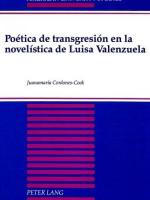
Poética de transgresión en la novelística de Luisa Valenzuela
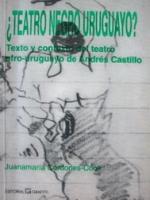
¿Teatro negro uruguayo?
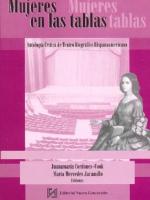
Mujeres en las tablas
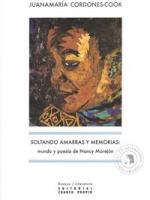
Soltando Amarras y memorias: Mundo y poesía de Nancy Morejón
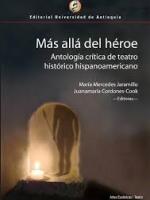
Más allá del héroe: Antología crítica de teatro biográfico hispanoamericano
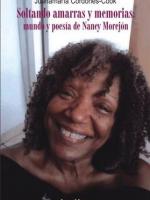
Soltando amarras y memorias, Revised 2nd edition
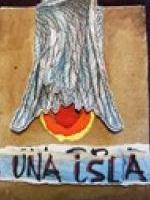
Two women One Island
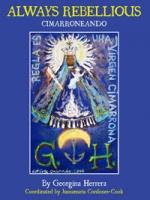
Always rebellious
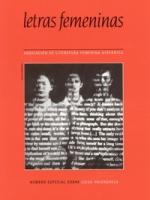
Letras Femeninas
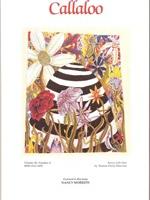
Callaloo
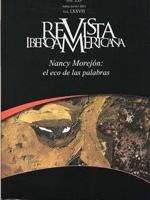
Revista Iberoamericana
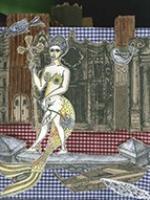
La Habana Expuesta/Havana on Display
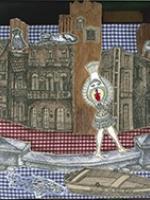
La Habana Expuesta/Havana on Display Back Cover
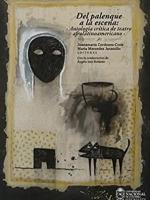
Del palenque a la escena
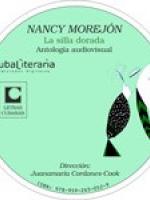
La silla dorada
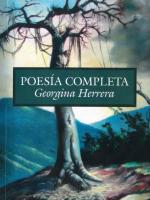
Poesia Completa, Georgina Herrera
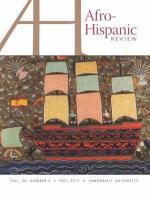
Afro-Hispanic Review
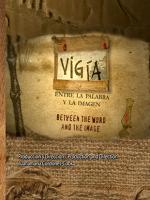
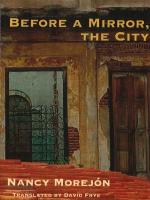
Before a Mirror: The City
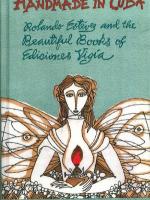
Handmade in Cuba: Rolando Estévez and the Beautiful Books of Ediciones Vigía (2020)
